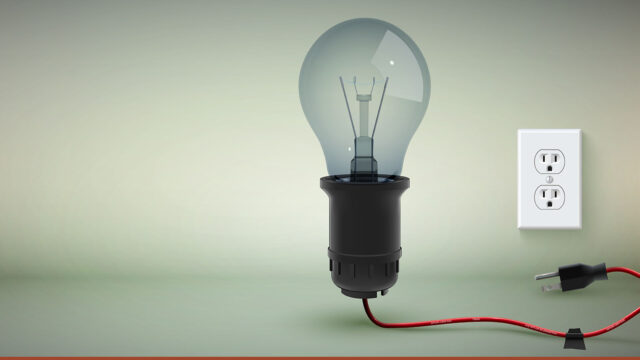Tips for lowering your electricity bill
The price of electricity has gone up, but utilising a few of these tips will ensure you reduce your consumption and pay less.

You’ve probably noticed that utility bills, especially electricity, are on the rise.
The cost of electricity has now increased by up to 63 per cent which will see Kenyans pay higher electricity bills after the Energy and Petroleum Regulatory Authority approved new tariffs.
Kenyans consuming less than 30 units will now pay KSh12.2 per unit up from KSh10 per unit while those who use between 30-100 units will now pay KSh16.3 per unit, which is a 63 per cent increase.
The higher energy prices mean less money in the pockets of Kenyans. There are however simple measures one can take to cut down on electricity costs.
Turn off lights when you leave a room
Turning off lights when you leave a room is the most basic step you can take to reduce your electricity bill and save some money. Not only does it cut down your electricity costs, but it also helps to reduce your carbon footprint – electricity generation is one of the biggest sources of carbon emissions that contribute to climate change. Apart from saving the environment, you will also be extending the life of your light bulbs.
Spend less time in the shower
One of the best ways to relax and cool off after a hard day is by taking a long hot shower. But this luxury comes at a cost and can come with a noticeable difference to your monthly electricity bill. So, to save energy in the bathroom, it is recommended to take a less lengthy shower every so often. Additionally, replace an inefficient shower head with a water-efficient one, and, remember to reduce the amount of hot water by not letting the shower run when you’re not using it.
According to KPLC, 30 drops per minute of water from a hot water tap costs you around 18KWh per month which is roughly KSh320.
It’s, therefore imperative to ensure you don’t have any leaking taps or pipes.
Use energy-saving bulbs
Traditional light bulbs (incandescent bulbs) and halogen bulbs are gradually being phased out in favor of energy-saving bulbs. Energy-saving bulbs last longer, shine brighter and reduce the amount of energy required to power them. It is recommended to either use Compact Fluorescent Lamps (CFL) which save up to 80 % of the energy used on lighting or Light Emitting Diodes (LED) bulbs which save up to 85% energy compared to ordinary bulbs.
Switch off electronics that are on standby
Did you know that most commonly used electrical devices in your home still use power when plugged in, but turned off? This power consumption is known as standby power. Because of the construction of their power supplies, electrical appliances consume electricity in standby mode; this is known as phantom energy, vampire energy, leaking electricity, or electricity leak. Kenya Power says a TV left on standby can use up to 10% more power and unplugging your music system can save up to 50% on energy consumed. Additionally, once a phone is fully charged, the phone charger should be unplugged and DVD players should be switched off to save up to 50 % of the energy they consume.
Avoid overfilling the kettle
How many times have you, or have you seen someone overfill the kettle, boil water then forget about it making it necessary to boil later?
The less hot water you use, the more you can save on electricity and water resources. Alternatively, once you’ve boiled the water, keep it in a thermos to avoid boiling water every time you need a cup of hot water. It’s also advisable to buy a kettle with a water level indicator to measure the quantity you need.
Be careful with your washing machine
Washing clothes with a washing machine can use lots of water and electricity, if not used properly. To save energy, wash full loads of laundry because regardless of the size of the load, a washing machine uses almost the same amount of energy.
Water heating accounts for about 90% of the washing machine’s energy consumption, so, unless your clothes have really tough stains like oil stains, use cold water.
Use a smart meter
About two years ago KPLC embarked on a smart metering project for SMEs. The smart meters accurately measure power usage and provide real-time information to the power utility company and consumers.
However, not everyone has access to smart meters, so prepaid meters are the next best thing that can be used to track how many units of electricity one uses in a day and adjust accordingly.
Use natural light
Using natural light is one of the key ways to save on energy costs from artificial lighting. The easiest way to let in light in your house is by opening the curtains during the day. Depending on the weather, opening the curtains can provide you with enough sunlight to brighten your house. Also, the color of the paint on your walls can determine whether your home looks dark and dreary or warm and inviting. Light-colored walls could increase the natural light in your house.
Dress appropriately for the weather inside your house
Compared to other countries, the weather in Kenya, most of the time, does not warrant households to use elaborate heating systems. But when it becomes too cold people use heaters to warm their houses. If there is no need for a heater, dress warmly inside your house. But if you have to, use lower-wattage heaters.
